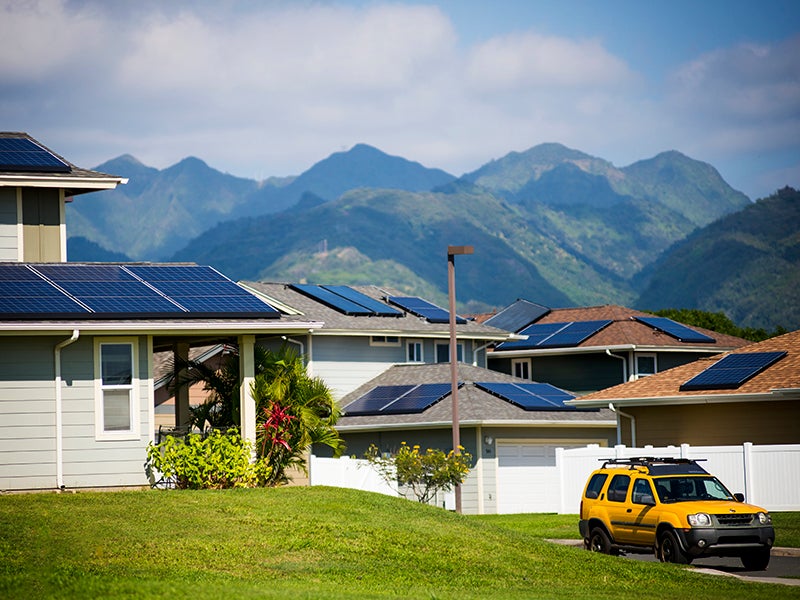Model For Monopoly Power Companies Needs to Change
The Public Utilities Commission rejected the NextEra-Hawaiian Electric takeover deal, but the real work to build a clean energy system by and for the people of Hawaii has just begun.

This page was published 8 years ago. Find the latest on Earthjustice’s work.
What’s next after NextEra? The Public Utilities Commission rejected the NextEra-Hawaiian Electric takeover deal, but the real work to build a clean energy system by and for the people of Hawaii has just begun. [Read more about Hawai‘i’s Public Utilities Commission rejection of the $4.3 billion sale of HECO, Hawai‘i’s main utility, to Florida-based NextEra Energy.]
The fundamental flaw of the deal was that it put the interests of the companies and their shareholders first—and left the interests of customers and the public as an afterthought. But that bad deal wasn’t just some big mistake by the companies and their executives. It was the latest, biggest culmination of an old-fashioned system of running and regulating energy utilities that is imposing ever-increasing costs to customers and harms to our environment and planet.
First, let’s make one thing clear. Our electric utility is not a dental practice that can be sold to the highest bidder, where customers can simply move to another dentist. It is a government-granted monopoly—a privilege—to serve over 95 percent of the state’s population.
That’s why complaints that the failed deal makes Hawai‘i “bad for business” are so off base. Hawaiian Electric wanted to sell out because NextEra would pay them the most. But the ultimate question that must be answered is how to serve customers and the public the best.
Hawai‘i and other states taking the lead in clean energy transformation are redefining this concept of “service.” Traditionally, utilities built big fossil-fuel plants and passed the costs, plus a profit margin, onto consumers. That system has saddled Hawaii with the nation’s highest electric bills, along with the escalating costs of climate change.
Now, customers want cleaner and cheaper options like rooftop solar and other emerging technologies like home batteries. But utilities see such advancements as competition or a threat to their traditional business, rather than a new opportunity and responsibility to serve.
Achieving Hawai‘i’s ambitious goal of 100 percent renewable energy is already challenging, and only more difficult when the utility is dragging in another direction. Thus, beyond rejecting the NextEra deal, work must continue on creating a new energy system that is “wired the right way” to serve the public interest above all.
The PUC has called for HECO to develop a new business strategy, moving from its old top-down monopoly to a new “platform” role enabling markets and customer choices in clean energy. In addition, we need to reform the way we regulate utilities in order to stop repeating the same results. The old social license for utilities to profit from the fossil fuel generation business, while passing all the costs onto customers, no longer works for our pocketbooks or our planet.
Other alternative models may offer solutions. Cooperatives or municipally owned utilities, for example, could improve public accountability and reduce costs and rates. An “Independent System Operator,” which oversees the grid like air traffic control, could facilitate equal access and fair competition. “Microgrids” formed by customers or communities could help build a new clean energy network from the bottom up.
All of these options would better align our energy system with the needs of our communities and environment. All paths forward will require open and constructive dialogue among everyone including HECO.
While the NextEra deal was an unfortunate detour, it nonetheless galvanized the need for change more than ever before. Now, everyone who showed so much vision and fortitude in their stand on the proposed takeover must keep working to realize a clean energy future by and for the people.
This blog was first published by the Honolulu Star Advertiser on July 26, 2016.
Established in 1988, Earthjustice's Mid-Pacific Office, located in Honolulu, Hawaiʻi, works on a broad range of environmental and community health issues, including to ensure water is a public trust and to achieve a cleaner energy future.